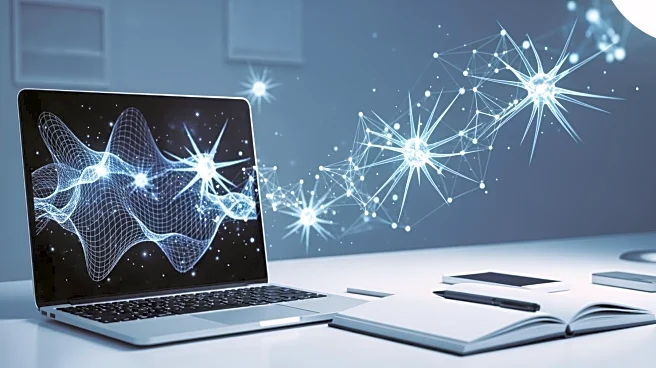What's Happening?
The integration of artificial intelligence into the workforce is significantly impacting new college graduates and the institutions that promised them employability. According to recent reports, the job
market for new graduates is facing one of the toughest periods in a decade, with entry-level job postings in the U.S. dropping by 35% since January 2023. This decline is largely attributed to AI replacing certain types of jobs, particularly in white-collar sectors. Employers are less optimistic about the job market for upcoming graduates, with 51% rating it as poor or fair. Colleges are under pressure to adapt their career services to better prepare students for a changing job landscape, emphasizing internships and hands-on experience to enhance marketability. The shift is causing concern among students and parents about the return on investment in higher education, especially given rising college costs and student loan burdens.
Why It's Important?
The impact of AI on the job market is reshaping the expectations and strategies of both graduates and educational institutions. As AI continues to replace entry-level positions, graduates face increased competition and fewer opportunities, particularly in sectors like technology and finance. This trend could lead to a reevaluation of the value of a college degree, as students and parents demand more assurance of job prospects post-graduation. Colleges may need to innovate their career services and curricula to align with the evolving demands of the workforce, potentially favoring institutions with strong ties to local employers. The broader economic implications include potential shifts in employment patterns and increased pressure on industries to adapt to technological advancements.
What's Next?
Colleges are likely to increase their focus on career-readiness programs, such as internships and cooperative education opportunities, to better equip students for the changing job market. Institutions like the City University of New York are already implementing comprehensive career-connected initiatives to improve outcomes for their students. As AI continues to evolve, industries may further restructure, leading to more layoffs and a need for workers to acquire new skills. The pressure on colleges to demonstrate the value of their degrees will intensify, potentially influencing enrollment patterns and educational strategies.
Beyond the Headlines
The integration of AI into the workforce raises ethical and cultural questions about the future of employment and the role of education in society. As AI replaces human jobs, there is a growing need to address the social and economic consequences, including potential disparities in job opportunities and the need for lifelong learning. The shift may also influence cultural perceptions of work and career paths, as traditional job roles evolve or disappear.










